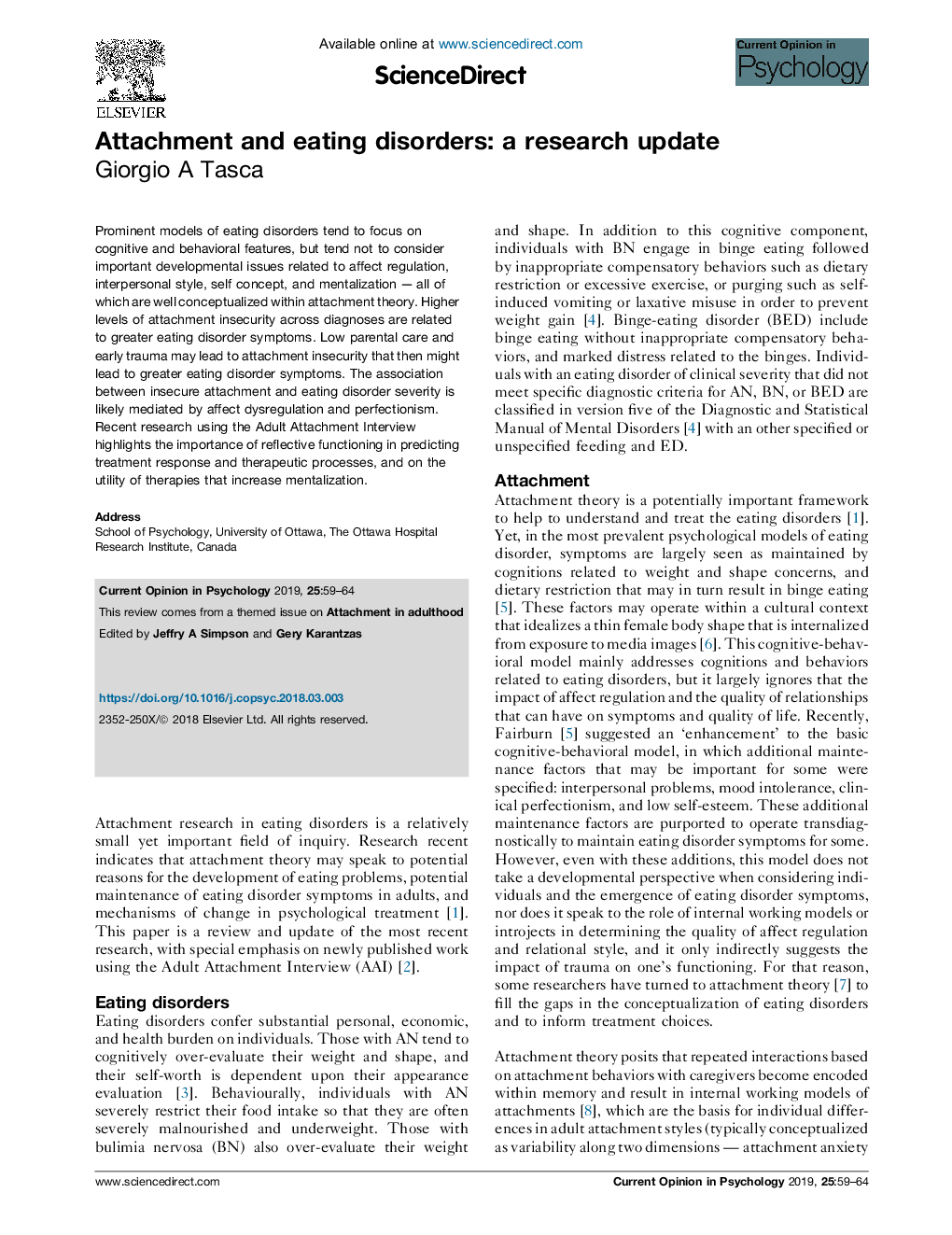| Article ID | Journal | Published Year | Pages | File Type |
|---|---|---|---|---|
| 7239798 | Current Opinion in Psychology | 2019 | 6 Pages |
Abstract
Prominent models of eating disorders tend to focus on cognitive and behavioral features, but tend not to consider important developmental issues related to affect regulation, interpersonal style, self concept, and mentalization - all of which are well conceptualized within attachment theory. Higher levels of attachment insecurity across diagnoses are related to greater eating disorder symptoms. Low parental care and early trauma may lead to attachment insecurity that then might lead to greater eating disorder symptoms. The association between insecure attachment and eating disorder severity is likely mediated by affect dysregulation and perfectionism. Recent research using the Adult Attachment Interview highlights the importance of reflective functioning in predicting treatment response and therapeutic processes, and on the utility of therapies that increase mentalization.
Related Topics
Social Sciences and Humanities
Psychology
Applied Psychology
Authors
Giorgio A Tasca,
